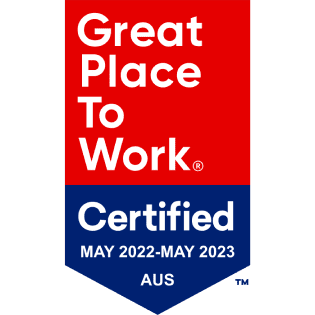3 tips to help with your job search
At some point in your career you may find yourself looking for a job when you least expect it. I discovered this the hard way alongside countless others during the Covid outbreak. On a seemingly ordinary Monday morning I arrived at work only to leave 10 minutes later after half the technology team were laid off. So, whether you have 20 years’ experience or if you are a graduate fresh out of university, it is critical that you have at least some idea about where to start looking for a new job. These tips will hopefully point you in the right direction:
1) Have a good CV!
It is all well & good having the skills & experience to do a particular job but ultimately these need to be fully showcased in your CV to reflect your suitability to any prospective employers. Try to make your CV concise without waffling too much about irrelevant or possibly outdated experience. Hiring managers are far more interested in your recent experience so focus more attention on your latest job role; using bullet-points to clearly summarise your relevant skills & experience. You can gradually decrease the content for less recent job roles.
Also make sure it’s obvious where you’ve used any tools or software throughout your career – try to include these for each of your job roles so it’s clear where you’ve used them. Recruiters will often use the classic Ctrl-F approach to gauge your suitability, so it does not hurt to litter your CV with key words – it may just increase your chance of getting noticed!
If you do not have any commercial experience, then draw more attention to your Education history. Try to focus on relevant projects and the key skills you gained, as well as any placements or internships.
2) How to search for a job:
There are many ways you can do this but it’s important that you are efficient in your job search, otherwise you’ll find yourself aimlessly applying to every job you see, wasting unnecessary time in doing so. A more streamlined approach is to write 3 or 4 CVs, each tailored towards your different unique skills & experience – keep them saved in folders so you can easily keep track of each profile.
When you see a role that looks a good match, instead of calling directly, simply pass the job poster your [pre-tailored] CV on LinkedIn and arrange a time to catch up. This adds a little more structure to your search, and you should notice an increase in meaningful conversations which will hopefully push you in the right direction.
You can also target specific companies which you are interested in working with. Simply run a search for managers & directors in your specialism then drop them a snappy message describing your situation and ask for their thoughts. When someone replies to your message, get them on the phone for an informal chat – even if they are not personally hiring, they may refer you to someone who is.
3) Interviews:
There is no reason to be nervous when you are going for an interview. It is important to remember that the employer does not hold all the cards. Consider the fact their business has a need… that is why they are hiring in the first place. Yes, they are assessing your suitably to fill the position; however, it is equally in your hands to determine their suitability as a prospective employer.
On the other, your interview is the prime opportunity to impress the hiring manager. Always try to lean your responses in-line with the role you are applying for and make sure you come prepared with some great examples to back your answers. At the end of the interview it is critical that you have lots of questions to ask. Some go-to questions are “why is the role available”, “how are the teams structured”, “what expectations would you have over the first 6 months”. Never reply with “no I think you’ve covered everything” – this is ultimately your opportunity to show the hiring manager that you are legitimately interested in the role.
Lastly, this is a massive cliché but never opt for a role simply because it is offering a high salary – always go for something which you are genuinely excited about!












